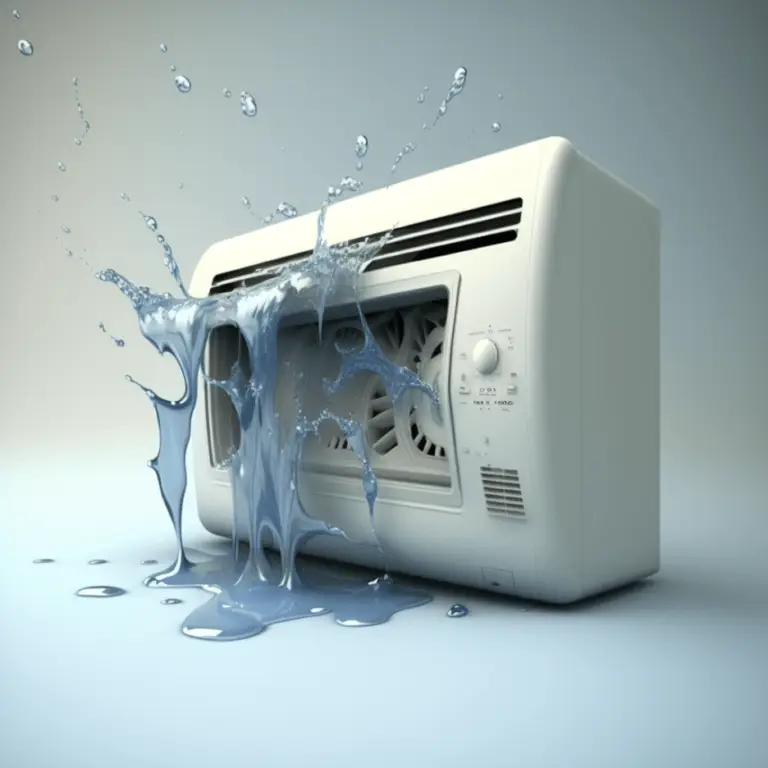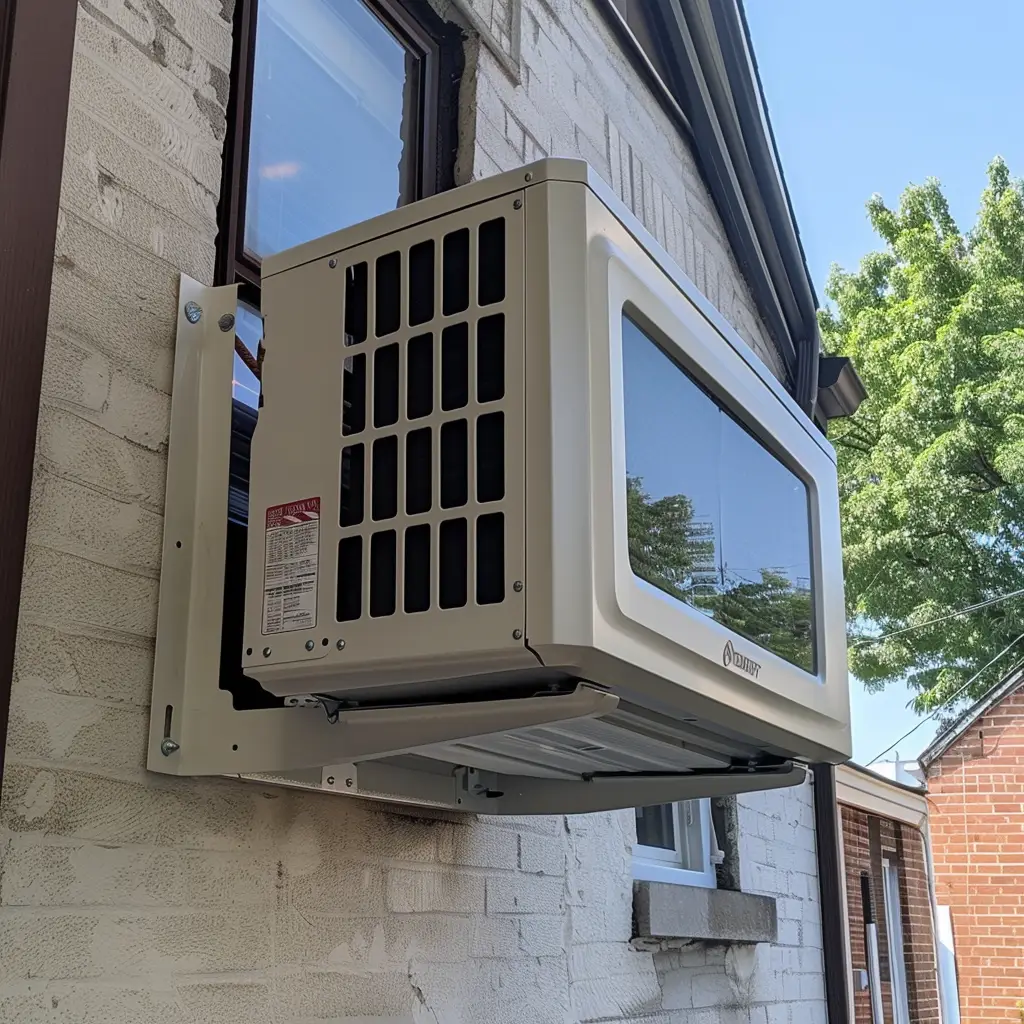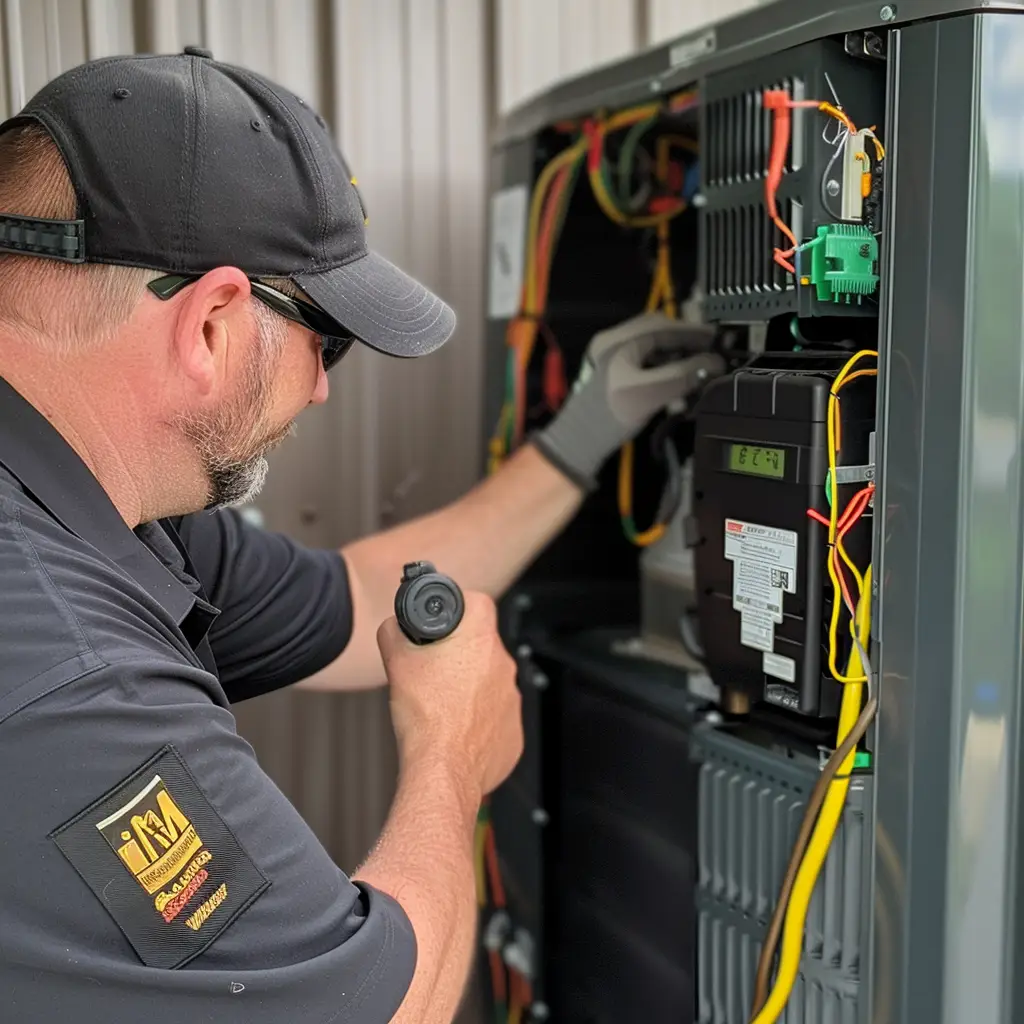At AirPoint, we understand the importance of maintaining your air conditioning system. However, we also understand that it can be challenging to detect when your AC system has a refrigerant leak. Refrigerant leaks can cause significant damage to your system and can be a safety hazard if left unchecked.
In this article, we will provide you with detailed information on AC refrigerant leaks and how to prevent them.
What Causes AC Refrigerant Leaks?
AC refrigerant leaks can be caused by various factors, such as wear and tear, corrosion, and faulty installation. When refrigerant leaks, it can cause your AC system to malfunction, leading to warm air blowing out of your vents, increased humidity, and higher energy bills. Additionally, refrigerant leaks can damage your compressor and other components in your AC system, resulting in costly repairs or replacement.
Signs of AC Refrigerant Leaks
Before we dive into the detection and fixing process, let’s first identify common signs of an AC refrigerant leak. The following are the signs you may notice if your AC has a refrigerant leak:
- Reduced Cooling: If your AC is not cooling your home as it used to, it could be a sign of a refrigerant leak. Low refrigerant levels can cause the AC to work harder, reducing its cooling capacity.
- Hissing or Bubbling Sounds: If you hear hissing or bubbling sounds coming from your AC unit, it could indicate a refrigerant leak. The sound comes from the refrigerant escaping through the leak.
- Warm Airflow: If your AC is blowing warm air instead of cold, it could be due to a refrigerant leak. Low refrigerant levels can cause the AC to produce warm air.
- Ice Buildup: If there is ice buildup on your AC unit, it could be due to a refrigerant leak. Low refrigerant levels can cause the evaporator coil to freeze, leading to ice buildup.
Locating the Leak:
Once you have identified the signs of a refrigerant leak, the next step is to locate the leak. Locating the leak can be challenging, and it’s best to leave it to professionals. However, if you want to attempt to find the leak yourself, follow these steps:
- Turn off the AC: Before you start, turn off the AC unit to avoid any accidents or injuries.
- Check the Condenser Coil: The condenser coil is located outside and is responsible for removing heat from the refrigerant. Check for any signs of damage, such as corrosion or physical damage.
- Check the Refrigerant Lines: The refrigerant lines are responsible for transporting refrigerant to and from the AC unit. Inspect the lines for any cracks, holes, or signs of wear and tear.
- Check the Evaporator Coil: The evaporator coil is located inside the AC unit and is responsible for absorbing heat from your home. Check for any signs of damage or ice buildup.
Preventing AC Refrigerant Leaks
Preventing AC refrigerant leaks is vital to keeping your system running efficiently and prolonging its lifespan. One way to prevent refrigerant leaks is to schedule regular maintenance with a professional AC technician. During maintenance, the technician will check for refrigerant leaks and other issues that can cause problems. Additionally, make sure to change your air filters regularly to prevent clogging, which can cause your system to work harder and potentially cause a refrigerant leak.
What to Do If You Suspect an AC Refrigerant Leak
If you suspect an AC refrigerant leak, it’s essential to take action right away. The longer you wait, the more damage can occur, leading to costly repairs or replacement. The first step is to turn off your AC system to prevent further damage. Next, contact a professional AC technician to inspect your system for leaks and determine the best course of action.
Trust AirPoint to fix your AC Refrigerant Leak
AC refrigerant leaks can be a significant problem if left unchecked. They can cause your system to malfunction, resulting in warm air blowing out of your vents, increased humidity, and higher energy bills. Preventing refrigerant leaks is crucial to keeping your system running efficiently and prolonging its lifespan. Schedule regular maintenance with a professional AC technician and change your air filters regularly to prevent clogging. If you suspect an AC refrigerant leak, take action right away to prevent further damage.
At AirPoint, we take pride in providing top-quality AC services in Toronto. As a Carrier factory authorized dealer and NATE certified company, we have the highest title of dealership with Carrier. We’re awarded HomeStars Best of the Best 2023 and have been rated 5 stars on Google and HomeStars. Our team of experienced and skilled technicians can help you with all your AC needs, including maintenance, repair, and installation. We prioritize customer satisfaction and offer competitive pricing and reliable service.
Whether you need AC maintenance to prevent refrigerant leaks or repair services to fix a leak, you can trust AirPoint to provide you with exceptional service. Contact us today to schedule an appointment or to learn more about our services.
If you want to learn more on how to find an AC refrigerant leak, check out this video by HVAC Guide For Homeowners.
AC Refrigerant Leak FAQs: Answers from the Experts
Get more answers to your most pressing questions about AC refrigerant leaks from the experts at AirPoint
Can I use my AC with a refrigerant leak?
No, you should not use your AC with a refrigerant leak. Not only can it cause harm to the environment, but it can also cause severe damage to your AC unit.
Can I fix a refrigerant leak myself?
While it's possible to fix a refrigerant leak yourself, it's best to leave it to professionals. Fixing a leak requires specialized equipment and expertise, which professionals have.
How much does it cost to fix an AC refrigerant leak?
The cost of fixing an AC refrigerant leak varies depending on the severity of the leak and the extent of the damage. On average, it can cost anywhere between $200-$1,500.
Can a refrigerant leak cause health problems?
Yes, a refrigerant leak can cause health problems, such as headaches, dizziness, nausea, and eye irritation. It's important to take necessary precautions and seek professional help if you suspect a refrigerant leak.
How often should I check for refrigerant leaks in my AC unit?
It's recommended to have your AC unit checked for refrigerant leaks once a year. Regular maintenance and inspection can help prevent and detect any issues before they become severe.
What type of refrigerant is used in AC units?
The type of refrigerant used in AC units varies depending on the age and type of AC unit. Older AC units typically use R-22 refrigerant, while newer units use R-410A refrigerant. It's essential to know the type of refrigerant used in your AC unit to ensure proper maintenance and avoid any issues.





